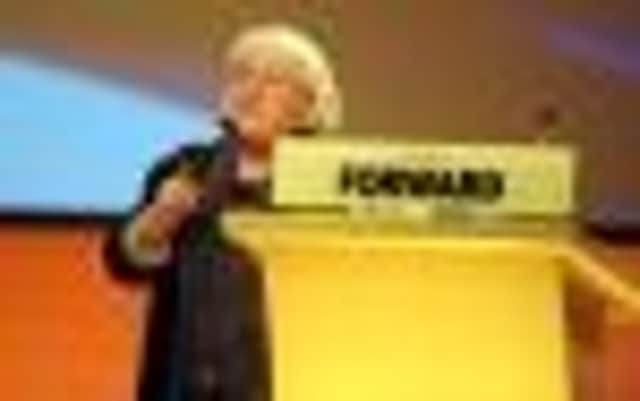Leaders: Second referendum chatter should be nipped in the bud


Sandra White, an SNP backbencher, said at the weekend that if the pro-independence campaign failed to secure sufficient votes, “then I believe we would go for another referendum, especially if it’s close”.
If, as is possible, the SNP loses the referendum in 2014 but wins the Holyrood election in 2016, the new administration could attempt to re-stage the referendum vote. Ms White’s remarks open the prospect of another referendum soon after 2014 and indeed, a series of votes stretching into the future until the independence campaign triumphs.
Advertisement
Hide AdAdvertisement
Hide AdYesterday First Minister Alex Salmond moved quickly to distance himself from the prospect of a second vote being held so quickly by reiterating his previous position that a referendum should be a once-in-a-generation event. The “Edinburgh Agreement”, signed by Mr Salmond and Prime Minister David Cameron this autumn, sought to enshrine respect for the outcome with a specific provision that both sides would honour the outcome of the ballot. It would be a glaring breach of faith were the SNP to go back on its word so quickly after a signed commitment by its leader.
Mr Salmond was right to make his position clear yesterday and we welcome that reaffirmation. Nevertheless, Ms White’s remarks cannot but fuel apprehension that the issue will not be resolved if the vote is close in 2014 and that Scotland could be set for years of indecision and uncertainty. That would be bad for Scottish politics and potentially very damaging indeed for a business community already exercised by the two-year referendum campaign.
The spectre of a second referendum also raises a worry among those campaigning for Scotland to remain within the union that a simple No majority will not be enough, and that it will need to see an emphatic rejection of independence for the vote to carry credibility. As it is, Ms White will certainly feel that she has spoken on behalf of a considerable number within the SNP who, were the 2014 vote to be narrowly lost, would not wish to wait for another generation before having another go: she says it would be unfair if a second vote was denied. It would certainly not be unfair to the majority that voted No.
The prospect of a second referendum in 2016 would mean that since the run-up to devolution, politics in Scotland would have been dominated by constitutional change for an exhausting 20 years.
SNP spokesmen insisted yesterday they were focused on winning the 2014 vote and that they were confident that their campaign would secure a Yes vote. There would be enormous frustration were the impression allowed to gain ground that the vote could always be held again if the SNP didn’t win the first time. We hope Mr Salmond will continue to stick firmly by the commitment he has given to honour the referendum outcome.
A bureaucracy bad for its own health
Few areas of modern life have more fired the imagination – and fired up the public – than the cult of “health and safety”. This has become the catch-all excuse for all manner of absurd official rulings and interventions. “Elf ‘n’ safety” has been invoked to ban yo-yos in playgrounds, knives in kitchens, kettles in offices and even buggies on golf courses. All have fallen foul of the thoughtless and officious intervention of the health and safety jobsworth.
The plague of silly application has given legitimate regulation such a bad name that the Health and Safety Executive has set up its own Myth Busters Challenge Panel – itself something of a
bureaucratic grotesque. In dozens of cases, the panel has found the invocation of “health and safety” to be unjustified where not transparently absurd.
Advertisement
Hide AdAdvertisement
Hide AdThe problem more often than not is the result of managers and officials looking for a quiet life or over-reacting to fears of legal action. In truth, the dotty invocation of health and safety to ban the most everyday activities can be seen as the bizarre alter ego of today’s compensation culture.
Anything that is seen to pose the remotest possibility of danger – from the sale of knitting needles in charity shops to the supply of bath towels in hotels – is seized upon by officials to justify their existence. For fear of a compensation chancer we have fallen victim to rule by fussy, over-protective, “daren’t take the risk” zealots.
This, says the HSE, may be due in part to “communication failures”. There is no question of failing to understand the public response to all of this: it has blown such a loud raspberry that the HSE has been obliged to intervene to rescue its own reputation.